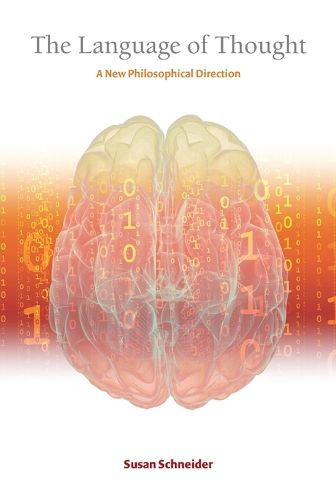Readings Newsletter
Become a Readings Member to make your shopping experience even easier.
Sign in or sign up for free!
You’re not far away from qualifying for FREE standard shipping within Australia
You’ve qualified for FREE standard shipping within Australia
The cart is loading…






A philosophical refashioning of the Language of Thought approach and the related computational theory of mind.The language of thought (LOT) approach to the nature of mind has been highly influential in cognitive science and the philosophy of mind; and yet, as Susan Schneider argues, its philosophical foundations are weak. In this philosophical refashioning of LOT and the related computational theory of mind (CTM), Schneider offers a different framework than has been developed by LOT and CTM’s main architect, Jerry Fodor- one that seeks integration with neuroscience, repudiates Fodor’s pessimism about the capacity of cognitive science to explain cognition, embraces pragmatism, and advances a different approach to the nature of concepts, mental symbols, and modes of presentation. According to the LOT approach, conceptual thought is determined by the manipulation of mental symbols according to algorithms. Schneider tackles three key problems that have plagued the LOT approach for decades- the computational nature of the central system (the system responsible for higher cognitive function); the nature of symbols; and Frege cases. To address these problems, Schneider develops a computational theory that is based on the Global Workspace approach; develops a theory of symbols, the algorithmic view ; and brings her theory of symbols to bear on LOT’s account of the causation of thought and behavior. In the course of solving these problems, Schneider shows that LOT must make peace with both computationalism and pragmatism; indeed, the new conception of symbols renders LOT a pragmatist theory. And LOT must turn its focus to cognitive and computational neuroscience for its naturalism to succeed.
$9.00 standard shipping within Australia
FREE standard shipping within Australia for orders over $100.00
Express & International shipping calculated at checkout
A philosophical refashioning of the Language of Thought approach and the related computational theory of mind.The language of thought (LOT) approach to the nature of mind has been highly influential in cognitive science and the philosophy of mind; and yet, as Susan Schneider argues, its philosophical foundations are weak. In this philosophical refashioning of LOT and the related computational theory of mind (CTM), Schneider offers a different framework than has been developed by LOT and CTM’s main architect, Jerry Fodor- one that seeks integration with neuroscience, repudiates Fodor’s pessimism about the capacity of cognitive science to explain cognition, embraces pragmatism, and advances a different approach to the nature of concepts, mental symbols, and modes of presentation. According to the LOT approach, conceptual thought is determined by the manipulation of mental symbols according to algorithms. Schneider tackles three key problems that have plagued the LOT approach for decades- the computational nature of the central system (the system responsible for higher cognitive function); the nature of symbols; and Frege cases. To address these problems, Schneider develops a computational theory that is based on the Global Workspace approach; develops a theory of symbols, the algorithmic view ; and brings her theory of symbols to bear on LOT’s account of the causation of thought and behavior. In the course of solving these problems, Schneider shows that LOT must make peace with both computationalism and pragmatism; indeed, the new conception of symbols renders LOT a pragmatist theory. And LOT must turn its focus to cognitive and computational neuroscience for its naturalism to succeed.